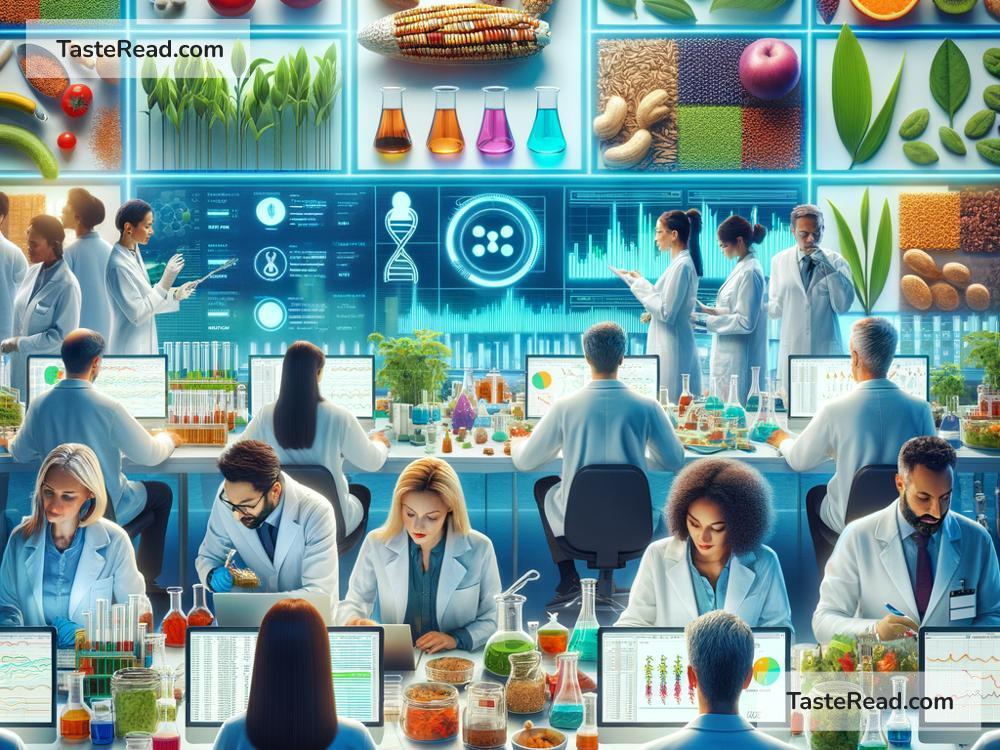The Impact of Food Biotechnology on Nutrition
Food biotechnology might sound complicated, but it’s something that affects our daily lives in simple ways. Essentially, it’s the science of improving food by using technology and biology. Scientists use food biotechnology to make crops grow faster, increase their nutrition, and protect them from pests and diseases. It’s also used to create products like yogurt, cheese, and even plant-based alternatives to meat and milk. But how does this technology impact nutrition? Let’s explore how food biotechnology influences what we eat and how it shapes the way we consume nutrients today.
Boosting the Nutritional Value of Foods
One of the most exciting aspects of food biotechnology is its ability to increase the nutrient content of foods. For instance, researchers have developed “biofortified” crops like golden rice, which is enriched with vitamin A. In many countries, people suffer from vitamin A deficiency, which can lead to blindness and even death, especially in children. Golden rice has helped provide this essential nutrient to millions who rely on rice as a staple food.
This kind of enhancement isn’t limited to rice. Corn, wheat, and other important crops are being improved to contain higher levels of zinc, iron, and other key nutrients our bodies need. These improvements are especially helpful in areas where people don’t have easy access to diverse diets. Instead of needing expensive supplements or special foods, essential nutrients can be added directly to everyday staples.
Making Food More Accessible
Food biotechnology also makes it easier to grow crops in challenging environments. Scientists use genetic modification to create plants that can survive extreme conditions, like drought or high salt levels in the soil. These “climate-resistant” crops grow even where traditional varieties would fail, ensuring that communities struggling with poor agricultural conditions still have access to nutritious food.
By increasing food production, biotechnology also helps combat hunger and malnutrition. Food is made available to more people, and when crops are fortified with nutrients, the food itself becomes healthier for everyone.
Protecting Crops While Keeping Safety in Mind
Another major benefit of food biotechnology is its role in protecting crops. Farmers often lose large amounts of their harvest to pests and diseases, which can destroy entire fields. Biotech crops are resistant to many of these threats. For example, scientists have developed pest-resistant corn and soybean plants, which reduce the need for chemical pesticides. This not only keeps the crops safe but also benefits the environment by cutting down on harmful chemicals.
But what does this mean for nutrition? Fewer pesticides can mean cleaner, safer food for consumers. Additionally, if farmers can grow more crops without losing them to pests or bad weather, there’s more food to go around—making sure everyone has enough.
Creating Innovative Food Products
Food biotechnology has also given rise to new and innovative food products that meet diverse nutritional needs. Take plant-based meat alternatives, for example. They are often created using biotech processes to mimic the taste and texture of meat while being made from plants. These products are rich in protein, lower in saturated fat, and better for the environment compared to traditional animal-based meat.
Another example is lactose-free milk and gluten-free bread. Biotechnology makes it possible to develop alternatives for people with specific dietary restrictions. This allows more people to enjoy a balanced diet without missing essential nutrients, even if they have allergies or sensitivities to common foods.
Addressing Misconceptions and Concerns
While food biotechnology offers huge benefits for nutrition and food security, it’s important to address concerns people may have. Some worry about the safety of genetically modified organisms (GMOs) and their long-term effects on health. Others are concerned about the environmental impact.
The good news is that scientific studies and regulatory processes are in place to ensure biotech foods are safe to eat. GMO crops are extensively tested before they reach consumers, often over several years, to check for safety and nutritional value. Educational efforts can help people understand the science and benefits of food biotechnology, reducing misconceptions and fears.
The Future of Food Nutrition
Looking ahead, food biotechnology is set to make even more exciting developments in nutrition. Scientists are working to create crops and foods tailored to meet the specific needs of individuals—what’s called “personalized nutrition.” Imagine food that is customized to match your health requirements, tastes, and preferences. This could help people manage chronic diseases, achieve better overall health, and reduce healthcare costs.
Additionally, advancements in biotechnology may help address global health challenges more effectively. Malnutrition is still a major problem in many parts of the world, and food biotechnology offers sustainable solutions to get nutrients to people who need them the most.
Conclusion
Food biotechnology is transforming the way we think about nutrition and food. By boosting nutrient levels, improving access to food, creating innovative products, and addressing global health challenges, it plays a powerful role in shaping a healthier future for everyone. While concerns and questions about safety and ethics exist, the benefits of this science are undeniable. With continued research and development, food biotechnology has the potential to nourish the world in ways we never thought possible.
Whether it’s fortified rice, plant-based meat, or crops that survive harsh conditions, this technology is making nutritious food more accessible to everyone. It’s changing how we grow, eat, and think about our food—and ultimately helping billions of people live healthier lives.


